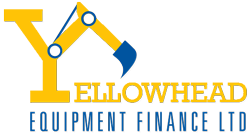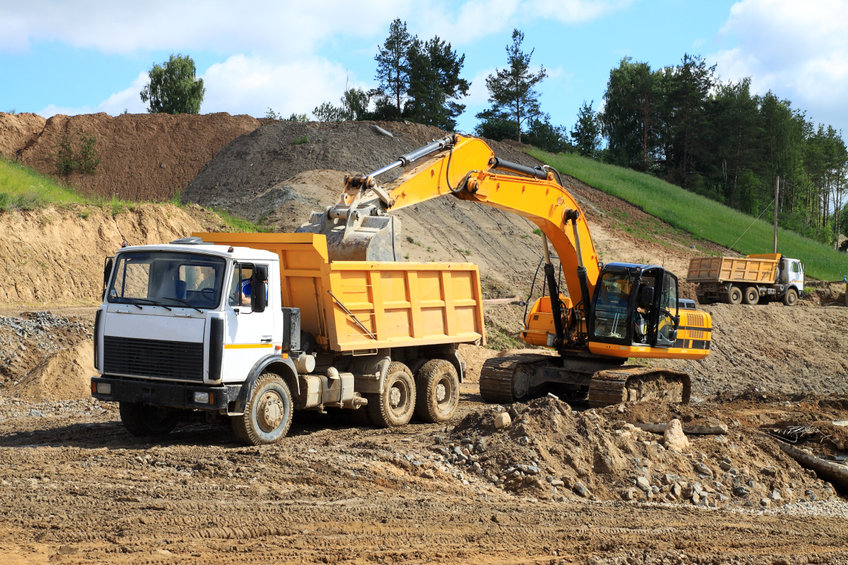Every business owner deals with many responsibilities. Managing workers, securing clients and customers, to handling the various problems that arise from day to day. All these things cost money. And for construction companies, there’s the issue of equipment in addition to that.
Through our experience, construction equipment can help solve plenty of problems, but construction equipment finance can help a company even more. Since equipment financing allows businesses to use the equipment as collateral, business owners can mitigate the risk if there is any issue with making a payment.
Getting these loans, making payments, and what can and can’t be financed are not always outlined in advance. To help, here are the basics that business owners need to know about construction equipment financing.
Important Things To Note:
- Construction equipment financing is used for heavy-duty equipment like bulldozers, tractors, and excavators.
- Construction equipment loans can be found online and through in-person banks. For faster processing, go through online lenders.
- Construction equipment loans don’t always require good credit. However, having good or excellent credit means getting interest rates.
How Do Loans Work?
The purpose of these loans is to either purchase or lease a new or used piece of equipment to keep the business operational. Construction equipment is a general term but it includes machines that move earth, rocks, and other heavy materials too.
How To Know If You Need A Loan
There are multiple reasons for applying for these loans. Generally, it amounts to replacing broken or malfunctioning equipment. That, or a loan purchases an expensive piece of equipment more realistic for a company that lacks the necessary capital.
Furthermore, these loans are handy in cases where a construction company takes on a new project where they need equipment they don’t have. For projects like these, companies lease equipment but a loan can help cover the monthly costs.
What Can Be Financed?
There are a wide variety of loans for construction equipment. But for a business owner to get the finance they need, they need to be able to prove the heavy equipment is going to be used for business purposes.
Where financing for equipment becomes trickier is in situations where custom equipment that’s made for a specific project. Banks struggle to place a true value on these pieces of equipment and so they generally don’t finance purchases like that.
Aside from that, the common types they finance are:
- Bulldozers.
- Tractors.
- Forklifts.
- Excavators.
- Vehicles.
Is Collateral Needed?
Since construction company owners are financing equipment costing tens of thousands to hundreds of thousands, banks are not going to finance these lightly. This is the same case for other types of heavy equipment, such as farming equipment. A business owner will likely need to offer collateral to accept the loan.
As for the cost, most banks will accept the equipment itself as collateral, although some might expect additional upfront payments. It’s advisable to speak with the lender directly about what collateral is appropriate.
Are There Benefits To Financing Construction Equipment?
Yes. There are several benefits that large and small construction companies can gain from this. Some are:
- Manageable payments. Generally, a company will be spending years to pay off a piece of equipment which is advantageous compared to a one-time large sum right now. Not every business can afford to spend $25,000 to $150,000 on a bulldozer right now. But it’s manageable if that was split into 25 or more payments.
- Tax benefits. The payments that are made on the loan are business expenses and companies can deduct these from their yearly tax returns.
- Better cash flow. Because the payments are spread out, it’s easier for companies to manage a positive cash flow rather than spending months recovering from a massive purchase of equipment.
How Do Businesses Qualify?
Construction equipment loans work like business loans, so the qualifications will be similar. To qualify, a business owner will need to:
- Provide a brief history of the business. Lenders want their money back, so if a business owner has a history of sales or services provided, that adds more reliability. Generally, a lender will want the business to be operational for at least six months.
- A structured financial system. Providing income information and business statements will help. Hiring or connecting with an accountant will help as they’ll keep the financial side of the business in good shape.
- A good credit score. While not required, as previously stated, having this greatly benefits a business. Companies can save a lot of money if they have excellent credit.
What Interest Rates Will a Business Face?
There is no exact average interest rate. The interest will fluctuate mainly based on the credit score of the applicant. However, there are other determining factors, like:
- Whether the business is making a down payment or not.
- The size of the down payment.
- Or whether the business is buying or leasing.
How Long Will It Take to Get Financing?
This is largely lender-dependent. Working with a larger bank in person will take business owners at least a few weeks to receive financing. Online lenders can promise some borrowers next-day financing at the cost of paying higher interest rates.
Financing With Bad Credit
If the business owner has bad or no credit, it doesn’t mean they can’t get a loan. In the world of equipment financing, bad credit means business owners will have a tougher time qualifying for the best rates. In addition, some banks might ask for down payments or charge a higher-than-normal interest rate.
Mitigating Bad Credit
There are ways to mitigate bad credit, though. Some considerations to make are:
- Work with a co-signer. A family member, business partner, or friend that has better credit can help mitigate the damage of bad credit. Provided they’re okay with signing the loan in these circumstances, this can change a high-interest rate into something more manageable. That said, the co-signer is responsible for that loan as a result so consider this carefully before asking for a co-signer.
- Lease the equipment instead. Especially in cases where a business doesn’t need the equipment long-term. A lease reduces the costs of maintenance and repairs and offers smaller payments. Aside from that, the loan period is also much shorter. Best of all, not all leases require credit scores.
Get started leasing or financing the equipment you need. Contact Yellowhead Equipment Finance today to get started. We’ll help you identify your eligibility, work with you to understand your options, and work with appropriate lenders to get the best solutions for your financing needs.







